Here's how JD Vance twisted and turned his way from humble Rust Belt beginnings into becoming a Yale-educated, best-selling author, and senator at 38
James Pasley

- JD Vance may be best-known for his memoir "Hillbilly Elegy," which was adapted into a movie for Netflix.
- Vance is a venture capitalist who formally entered politics in 2021, but he's had a national presence since 2016.
Born into a tumultuous household in Ohio, JD Vance worked his way up to become a US senator in 2022 at the age of 38.
In a short period of time, Vance went from the Marines to Yale Law School to working as a venture capitalist in Silicon Valley to becoming the best-selling author of "Hillbilly Elegy." Now, he's a successful Republican politician.
Vance has written a memoir about his life and beliefs, but has been criticized for changing his political views when it best serves him. For instance, he went from decrying former President Donald Trump to taking his political endorsement in 2021, and in January he even wrote about why he would be voting for Trump in 2024.
Here's his life and career until now.
James David Bowman, later known as JD Vance, was born in 1984 in Middletown, a poor Rust Belt town in Ohio.

Sources: New York Times, BBC
Vance's father left his family, and his mother had a drug and alcohol addiction. He ended up spending a lot of his childhood with his grandparents in Jackson, Kentucky.

In particular, Vance's grandmother, whom he affectionately called "Mamaw," had a big impact on him.
His Mamaw taught him to take responsibility for himself. She also said that most people were prejudiced but not openly, except when it came to "hillbillies."
"We are the only group of people you don't have to be ashamed to look down upon," Vance recalled his grandmother telling him in an interview with The American Conservative.
Sources: BBC, New Statesman, The American Conservative
To earn money, Vance worked at a local grocery store. He wrote about the class divide and the impact of social welfare he saw while there in his memoir. He resented food stamp recipients for being able to afford mobile phones and other luxuries his family couldn't.
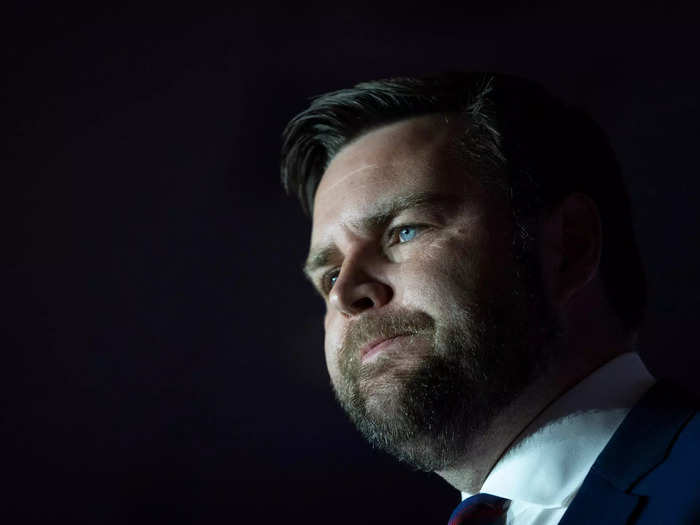
Source: The Guardian
After high school, Vance joined the Marines. He served for four years and went to Iraq. He wasn't involved in any combat but would go around with units, take photos, and write stories about what was going on.
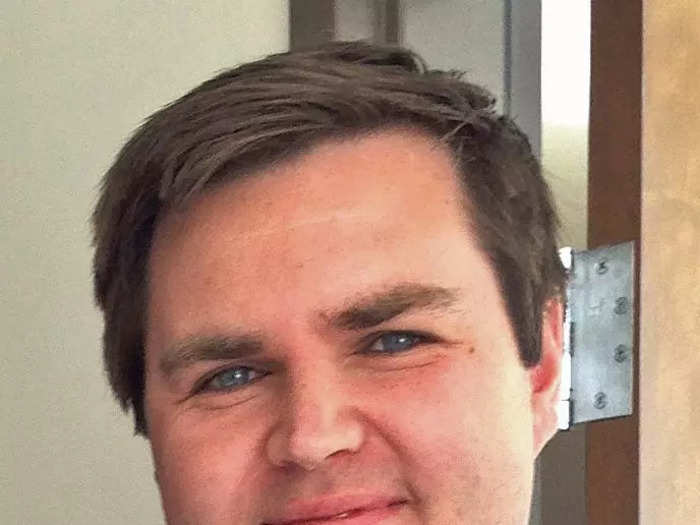
Sources: New York Times, BBC, Military.com
He told The American Conservative that his time with the Marines was an education in "character and self-management." He was taught to succeed through adversity by repetition and that in turn made him more confident.

Source: The American Conservative
After the Marines, Vance went to Ohio State University where he graduated summa cum laude with a degree in political science and philosophy.

Sources: New York Times, BBC
He later enrolled at Yale Law School. In his memoir, he wrote about how out of place he felt there. He said he didn't know things his peers took for granted — for instance, that people could work in finance, or that you should wear a suit to a job interview.
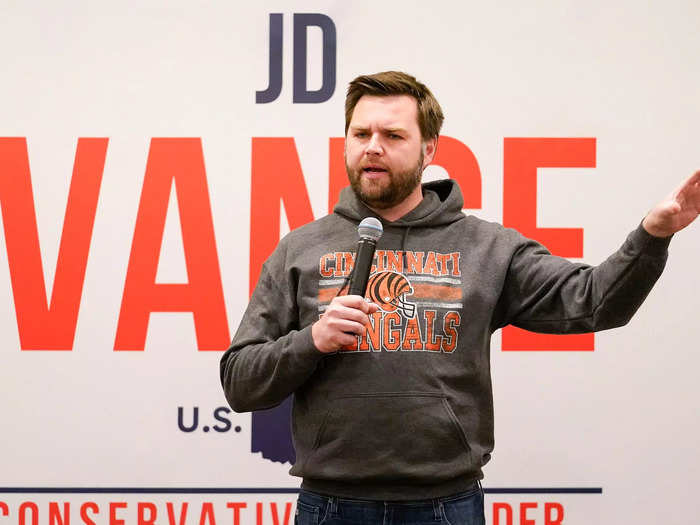
During his first year, he attended a talk by PayPal founder Peter Thiel. Thiel told the students they were often falling into isolating jobs that weren't actually helping society. Vance called his talk the "most significant moment" of his time at university.
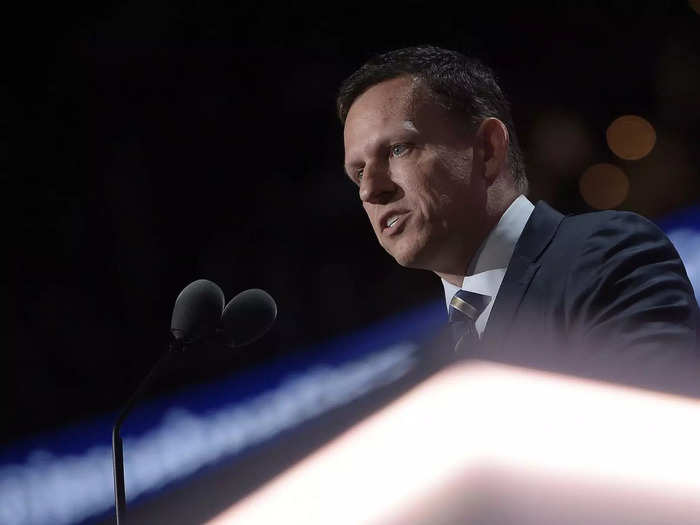
Source: Insider
Vance had several mentors, including David Frum, former President George W. Bush's speechwriter; and Yale law professor Amy Chua, who had written a memoir called "The Battle Hymn of the Tiger Mother." It was Chua who convinced Vance to write his own memoir.
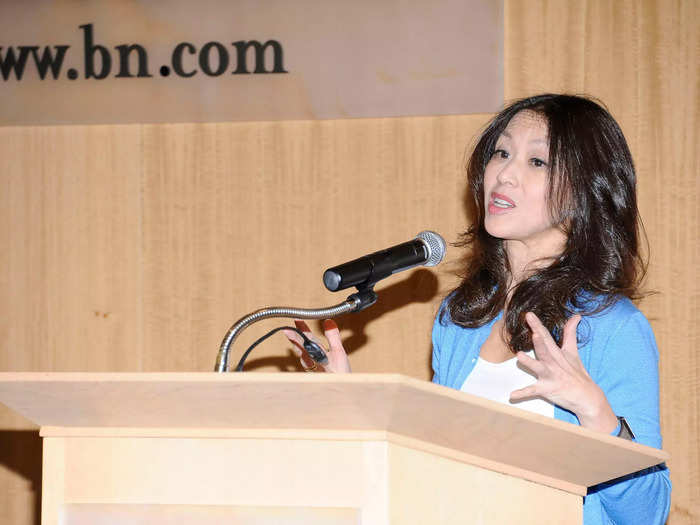
Sources: New York Times, BBC, The Guardian
He also met his wife Usha Chilukuri there in 2013 when the pair organized a discussion group about social decline in white America.
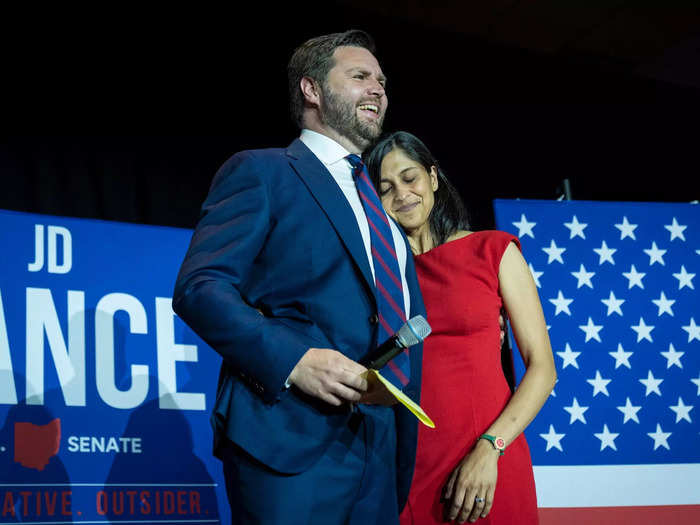
Chilukuri went on to clerk for two Supreme Court justices, earn a Ph. D in history, and work for a high profile law firm.
In an interview with The American Conservative, Vance revealed that he didn't believe he was a great spouse at first.
"I had to learn, with the help of my aunt and sister, but especially with the help of my wife, how not to turn every small disagreement into a shouting match or a public scene," he said.
He told Megyn Kelly on her podcast that he really benefited from a strong female perspective to guide him. Originally it was his grandma; now, it was his wife.
He also said that she brought him down to earth. Whenever he got cocky, he said he reminded himself she was more accomplished than he was.
Sources: New York Times New Statesman, New York Times, The American Conservative
After graduating in 2013, Vance worked as a clerk for Senator John Cornyn and US District Judge David Bunning before he got a job working at Mithril Capital, a venture capital firm founded by Thiel.

Sources: New York Times, New Statesman, Insider
In 2016, Vance published his memoir, "Hillbilly Elegy," when he was 31. The book was a New York Times bestseller. The American Conservative called it "an American classic" and "the most important book of 2016."
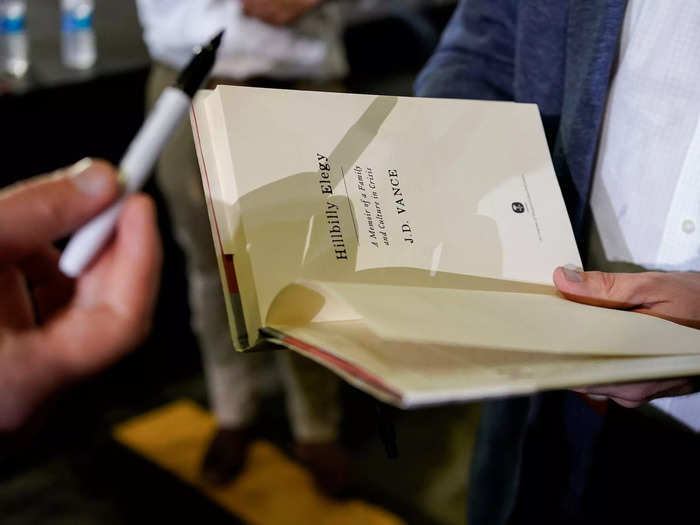
The Economist said in a review that "you will not read a more important book about America this year."
The book was published around the time former President Donald Trump won the Republican nomination.
A review of the book in the Los Angeles Times was titled: "JD Vance's 'Hillbilly Elegy' provides a window into the pain and anger of Trump's America."
Sources: New York Times, Politico, New Statesman, Los Angeles Times
The book gave Vance a national platform. It was often referred to by commentators as a way to understand America's white working class, and in doing so, help understand Trump's popularity.
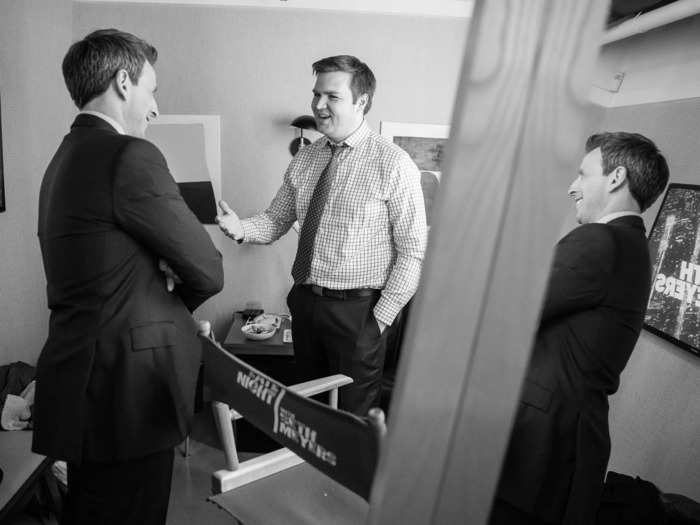
Sources: Politico, BBC, Insider, New Statesman
Not everyone agreed with what he had written. Vance was often particularly critical of Appalachians in his memoir, calling them lazy and that "many folks talk about working more than they actually work."
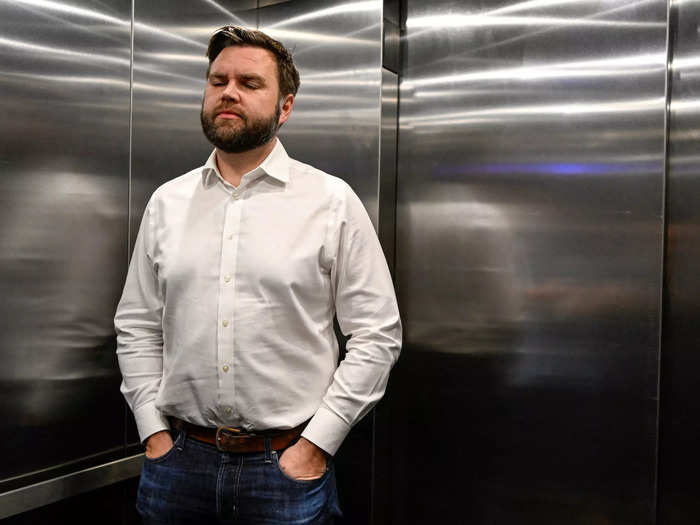
During a panel discussion in 2018, a group of young Appalachians protested Vance, turning away from him and singing a song titled, "Which Side Are You On?"
Source: New York Times
Vance began to get regular slots on Fox News, especially on host Tucker Carlson's program. He would later appear as a guest on Steve Bannon's podcast.
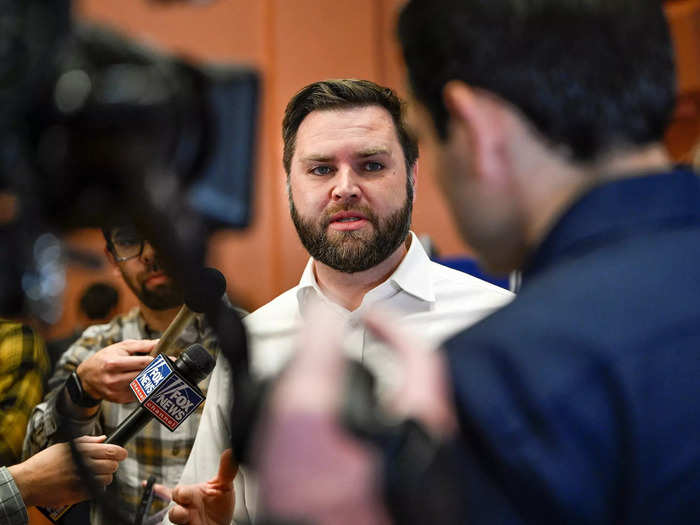
Source: New Yorker
Though Vance said he understood Trump's popularity, he didn't support him at first. On NPR in 2016, he said he couldn't "stomach" Trump and that he thought he was leading "the white working class to a very dark place."
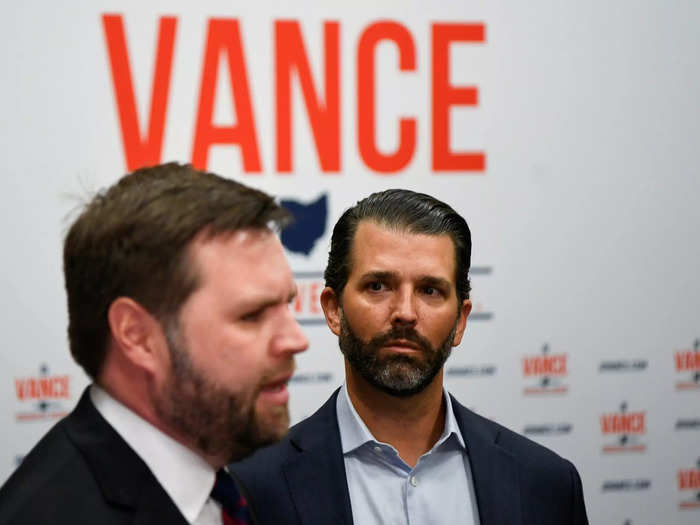
In a now-deleted tweet, Vance wrote, "In 4 years I hope people remember that it was those of us who empathized with Trump's voters who fought him most aggressively."
In a private message leaked on Twitter, he said he couldn't decide whether Trump was more like former President Richard Nixon or America's Hitler.
Sources: Politico, BBC, Insider, New Statesman
The book didn't help his work at Mithril either. Former colleagues told Insider in 2021 that "it never seemed like he was even working," since he was always promoting the book.
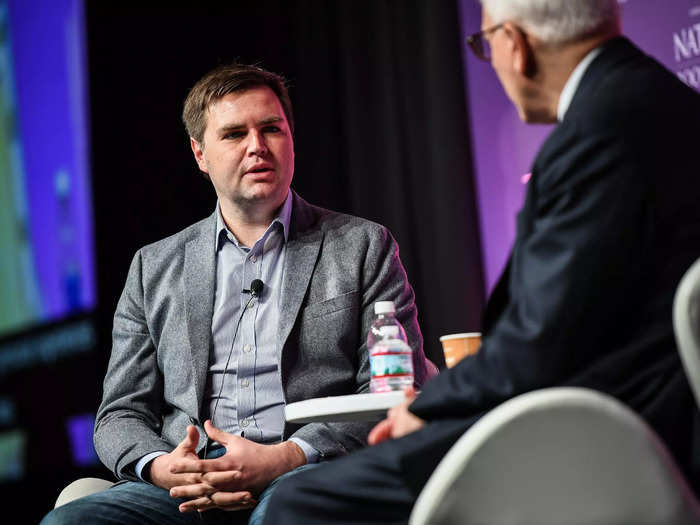
Vance has also admitted his contribution to the company was "probably debatable."
Source: Insider
In 2017, after less than a year at Mithril, Vance left Silicon Valley and moved back to Ohio. He founded a non-profit to fight opioids called Our Ohio Renewal.
In 2017, he was asked about entering politics. While he wasn't completely ruling it out, he said working on the opioid crisis and bringing new business to the Rust Belt was more important to him at the time.
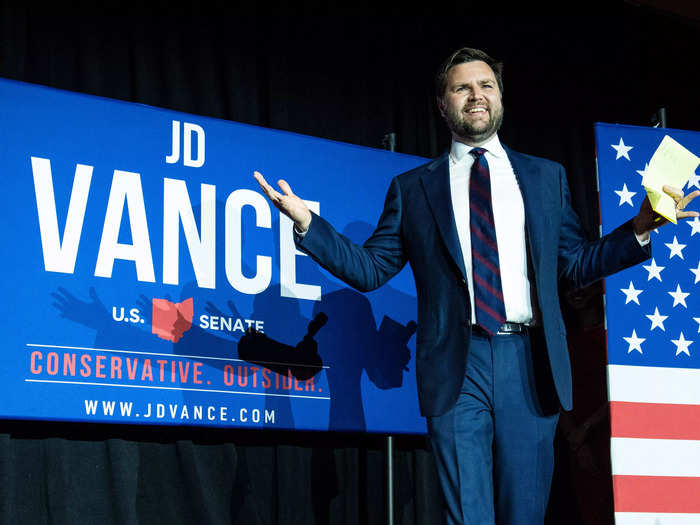
Source: Washington Post
He worked at a company called Revolution, which was founded by former AOL Chairman Steve Case, where they attempted to harness funds in otherwise overlooked parts of America, including Ohio.
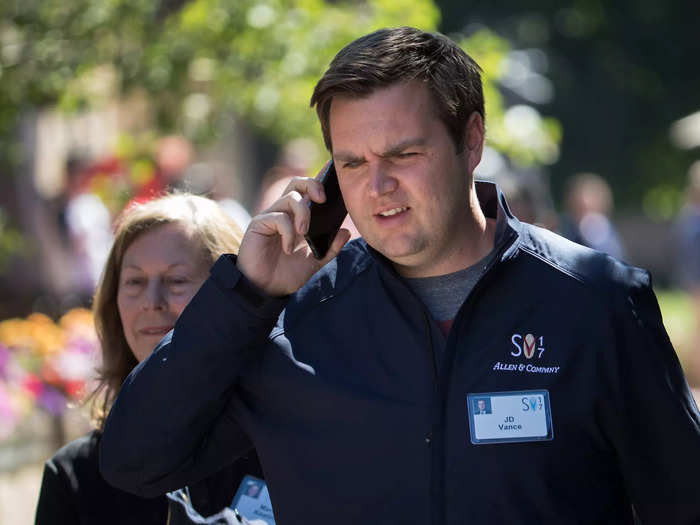
Source: BBC
In 2019, after raising $93 million, Vance launched Narya Capital, a venture capital firm that was funded by his old boss Peter Thiel. Like his boss's firm, it was named after a "Lord of the Rings" reference.

Sources: New York Times, BBC, Insider
In 2021, Vance announced he was running for the Senate. He launched his campaign in a Middletown factory.

"Every issue I believe traces back to this fact: on the one hand, the elites in the ruling class in this country are robbing us blind," he said at the launch, "and on the other, if you dare to complain about it, you are a bad person."
Vance touted a number of issues, including rallying against tech companies, liberal elites, and critical race theory.
He described himself as an outsider and said the 2020 election was "unfair," although he didn't say it was stolen.
When asked whether it was hypocritical to attack tech companies when he had the support of Thiel, he told Time: "It's not like I'm being funded by Mark Zuckerberg."
Sources: BBC, New Statesman, NBC News, Time
Mark Zuckerberg may not have been funding Vance, but he was being funded by Thiel. This time, Thiel donated $10 million to Vance's campaign. He also arranged a meeting with him and Trump at Mar-a-Lago where they reportedly smoothed out their differences.
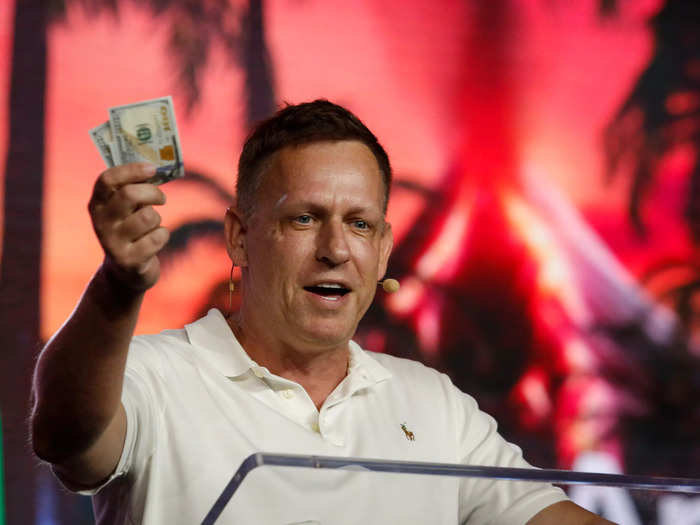
Source: Insider
Despite Vance's national profile, he wasn't a household name in Ohio. He struggled at first and remained behind in most polls.

Source: New York Times
But in April 2022, he came out in support of Trump. He called him a "great president" and said "when the facts change you gotta change your mind." In doing so, Vance would secure Trump's endorsement.

Sources: BBC, New Statesman
But not without Trump making him work for it first. During the campaign, Trump said, "JD is kissing my ass he wants my support so much."
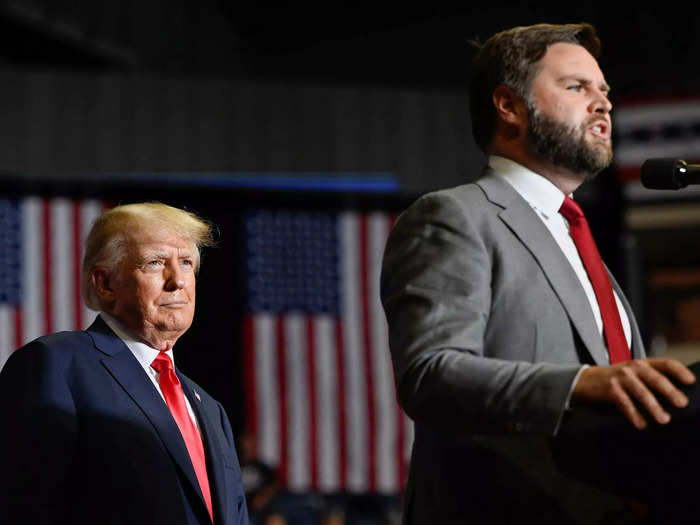
Source: New York Times
In May, he secured the Republican nomination with 32% of the vote.
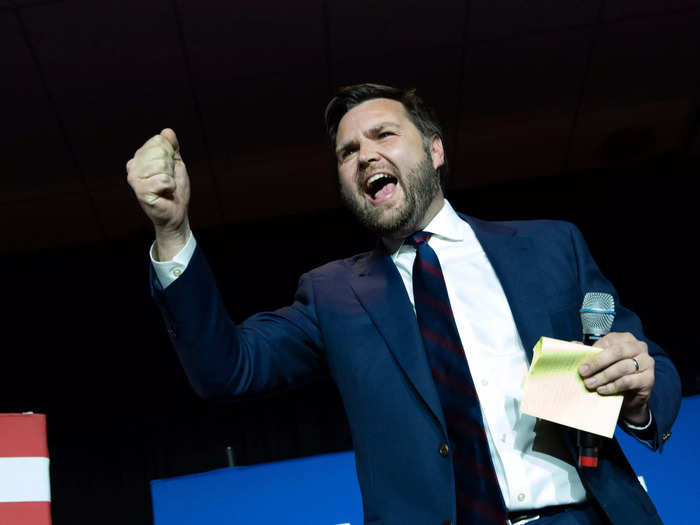
Source: New Statesman
Jessica Taylor, editor of Cook Political Report, told The Guardian: "He won the primary thanks to Trump's help, and it just felt like he went into the witness protection program."

Sources: New York Times, The Guardian
Although Ohio was predominantly Republican since Trump, Vance's campaign wasn't as intensive and on-the-ground as many Republicans wanted. He made few campaign appearances, and his win in Ohio against Democrat Tim Ryan wasn't guaranteed.

Sources: New York Times , The Guardian
In June, he appealed to his supporters by celebrating the Supreme Court overturning the landmark decision of Roe v. Wade.

In Ohio, abortion became illegal after six weeks of pregnancy, even in the case of rape.
"It's not whether a woman should be forced to bring a child to term," he had previously said. "It's whether a child should be allowed to live, even though the circumstances of that child's birth are somehow inconvenient or a problem for society."
Source: New Statesman
In September, he and Ryan were tied in the polls. It got so close that super PAC Senate Leadership Fund, aligned with Republican Senate leader Mitch McConnell, had to cut $8 million worth of ad funding reserved for its Senate race in Arizona to boost Vance's ads and ensure the Republicans didn't lose what had suddenly become a close race.
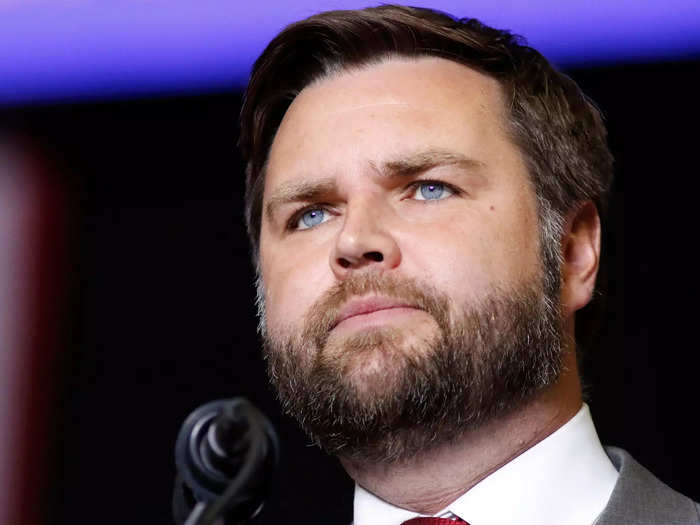
Source: The Guardian
The increased funding worked. After a final push in the last 50 days with increased appearances by Vance and more televised ads, Vance won and was elected as the US senator for Ohio in November.
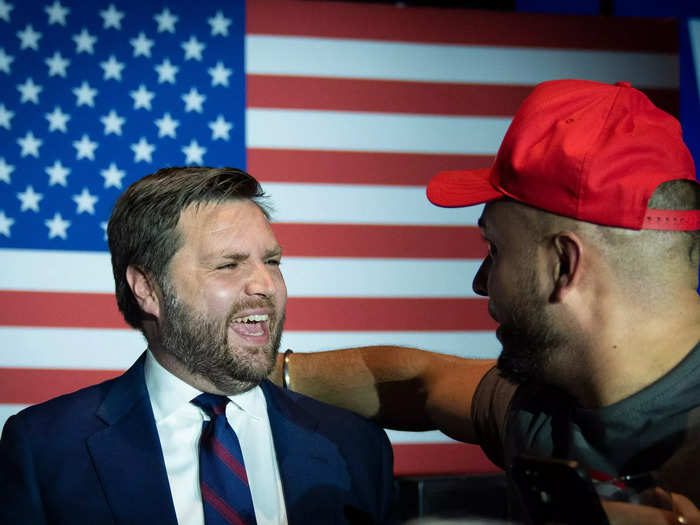
Sources: New York Times, The Guardian
Vance has only been in the Senate for a few months, but he's already showing his support for the man that made his run possible. In January, he wrote an op-ed for The Wall Street Journal about why he would be voting for Trump in 2024.
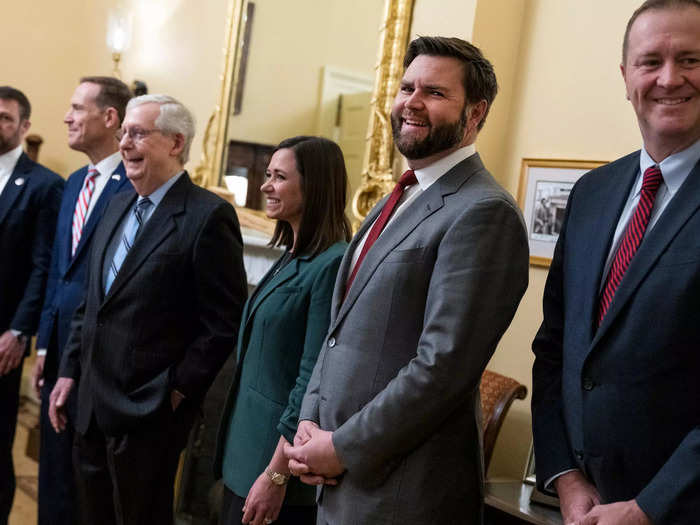
"Donald Trump's presidency marked the first real disruption to a failed consensus and the terrible consequences it wrought," Vance wrote. "That fact, more than any single accomplishment, is the enduring legacy of Mr. Trump's first term."
He added: "But there is much more to do, and I'm supporting him for president in 2024 because he's the only person certain to do it."
Source: Wall Street Journal
Popular Right Now
Popular Keywords
Advertisement